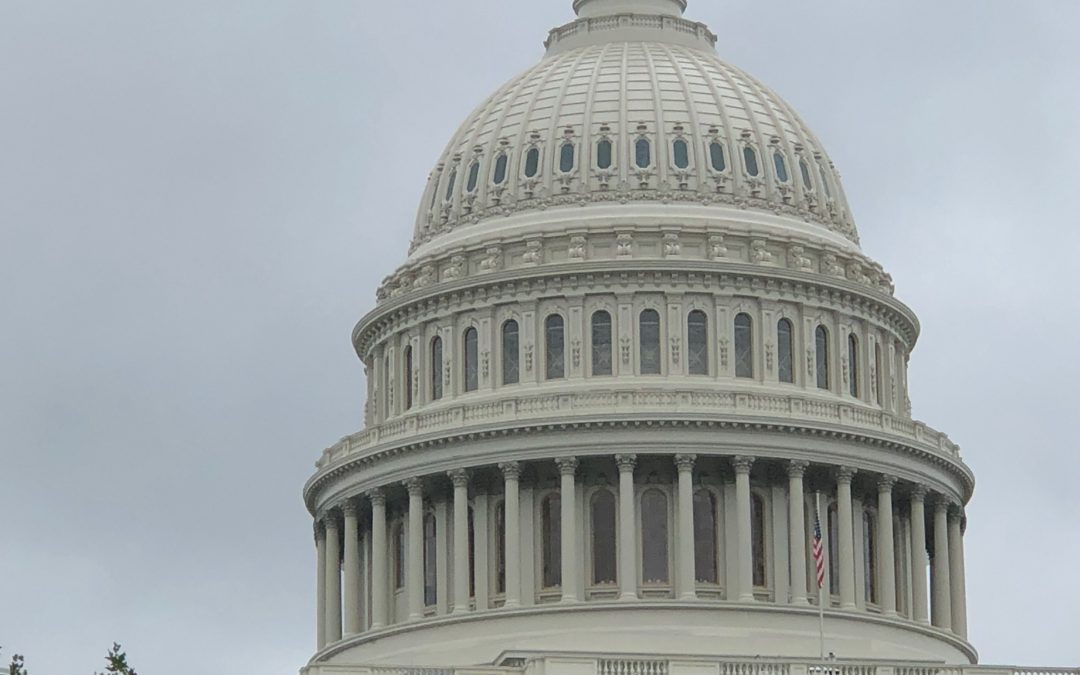
by Andrew Hibel | Apr 18, 2018 | Charitable Giving, Donor-Advised Funds, Featured, Linked In, Taxes |
The rules of the game are largely unchanged – it’s just that many taxpayers won’t be playing anymore The Tax Cuts and Jobs Act of 2017 is the legislative centerpiece of President Trump’s first year in office. The law increases the standard deduction, likely reducing taxpayers’ motivation to itemize deductions. While experts differ, most expect this change to have a negative effect on charitable giving. Donors who care about the mission and futures of the nonprofits they support should pay attention to what’s a fact, and what’s speculation, about the potential effects of this far-reaching act. Speculation: The act will limit charitable giving. No one knows the answer to this question – in fact, I suggest that no one knows if we’ll ever know! The effect will not be apparent soon, and when it arrives will very likely be buried amid other economic factors: a continued strong economy (and sustained donations) may suggest to some that there is no effect, while a troubled economy might exaggerate any interpretation. Trying to ferret out the law’s effect might be akin to trying to figure out which specific drink caused your hangover. Since a conclusive answer to the overall effect may be hard to come by, maybe the best strategy for scrambling nonprofits is to understand that itemization (and charitable giving) will continue to be a case by case decision for every donor. There’s nothing new about that – the key, as always, will be to send clear messages and build strong relationships (though perhaps with a bit more urgency than ever before). The tax law might leave a hole in your...

by Andrew Hibel | Apr 12, 2018 | Events, Featured, Linked In |
When your nonprofit organization’s CEO says “Do you take this strategic plan to have and to hold?,” can you say “I do!” with conviction? Being called upon to fund strategies that did not fully consider donors and development is justifiably every fundraiser’s nightmare. There should be a symbiosis between an organization’s strategic plans and its fundraising expectations, but that’s not always the case. Using real-world, cautionary tales of planning processes that succeeded or went awry and how fundraisers responded, this session equips organization executives, board members and development leaders with the perspective they need to ensure that strategic plans drive fundraising success – and vice versa. Join us for this free, 2-hour seminar, May 14, 9:00 am – 11:00 am presented by Doug Diefenbach, Principal, Diefenbach Communications Strategies Forefront, 208 South LaSalle Street, #1540 Chicago, IL Click here to reserve your spot today! Doug Diefenbach is an accomplished consultant with special expertise in the area of nonprofit and philanthropic marketing. For more than 30 years, in both executive and consulting roles, he has helped a wide range of organizations to develop, meet and exceed their goals for strategic alignment, brand visibility, constituent engagement and philanthropic...

by Andrew Hibel | Nov 9, 2017 | Charitable Giving, Donor-Advised Funds, Featured |
Representative Mark Walker of North Carolina has proposed the Universal Charitable Deduction which would allow non-itemizers to deduct their gifts in addition to taking the standard deduction. The bill caps the deduction at one-third of the standard deduction. The charitable community likes the universal concept, but many are wondering if the cap is needed as it can impact gifts from donors who don’t use the itemized deduction. Financial advisors often speak with their clients about charitable giving and, currently, many of those clients itemize their deductions. However, if as proposed in the “Big Six” in the Senate’s 9-page plan, the standard deduction would double and the itemized deduction for state and local taxes would not. If tax reform results in changes that affect the standard deduction, here are the reasons why financial advisors should support the Universal Charitable Deduction: The “Big Six” Plan Reduces Itemizers by almost 85% —This is estimated to reduce the percentage of taxpayers using the itemized deductions from 33% to 5%. Simply put, there could be significantly fewer clients itemizing their deductions without the Universal Charitable Deduction. Nothing Beats Appreciated Securities for Charitable Giving — Charitable giving is still one of the most tax efficient ways of working with large capital gains. These benefits are amplified with use of a donor-advised fund to help the client manage their grants to their favorite non-profits. Charitable Giving Builds Client Relationships — Clients can express the values and causes that are most important to their lives through their charitable giving. In many instances, how people donate their wealth will better explain their deeply valued desires than how they...

by Andrew Hibel | Oct 31, 2017 | Charitable Giving, Featured, Linked In |
I’ve found myself engaged in a good deal of conversations about the charitable deduction in 2017, but I still haven’t found what I am looking for (Just in case you care, the version of the U2 classic song that I prefer is this one (with Bruce Springsteen). Today, I spent a second day of 2017 on Capitol Hill. The National Association of Charitable Gift Planners gathered 800 professionals in Baltimore for its national conference this week. Fifty of us met with 62 Senator and Representative’s offices. In fact, we met with staff from 10 of the 26 Members of the Senate Finance Committee. We had done something similar in February where we were discussing Speaker Ryan’s “Blueprint”. but today was very different. We are on the verge of getting a tax reform Bill. The “Big Six” in the Senate issued a 9 page plan which outlined their goals for reform and while thjs plan does not offer a lot of detail about how tax reform would actually occur, I know what I was looking for… the Universal Charitable Deduction. On the face of it, the plan seems to simplify the tax process. It doubles the standard deduction while retaining the charitable deduction for those that itemize. As one representative said today “I thought they spared the charitable deduction.” While on its face it appears they spared the charitable deduction, in fact, the plan could end costing the charitable community up to $14.7 billion per year. Currently, roughly 1 of 3 of taxpayers itemized their deductions. It is estimated that when the standard deduction is doubled, around 1 of 20...

by Robert Freedman | Oct 2, 2017 | Charitable Giving, Donor Impact, Featured |
Over the past 10 days Jews around the world, myself included, observed the High Holy Days, Rosh Hashanah and Yom Kippur. During these days, I along with countless others, turned our thoughts towards Tikkun Olam (repairing the world) and Tzedakah (charity). Between the trio of powerful hurricanes that ripped through the Caribbean and the southeastern United States, powerful earthquakes devastating neighboring Mexico, and the ongoing struggles of poverty, poaching, and refugees in central Africa, there is no shortage of need around the world. As I reflected on my own faith traditions of helping those in need, I was prompted to think about what other faith traditions say about charitable giving, especially during their highest holy days. Uniting Christianity, Buddhism, Islam, and Judaism (amongst other things) is charitable giving. Here are some thoughts on charitable giving from these traditions: For Christians, the role of charity is first built on teachings in the Hebrew Bible. However, in addition to Hebrew teachings of performing mitzvahs are lessons in the New Testament. Jesus’s parables and actions also speak to the morality of charitable sentiments. The Gospel of Luke, for example, notes “love thy neighbor as thyself” and asks Jesus, “Who is my neighbor?” The lesson is that we are interconnected, everyone is my neighbor and thus all should be considered. Buddhists also see the interdependence of all things and have an awareness of the helplessness of those less fortunate. Practicing selflessness in this way is thought to increase one’s own merit and is also seen as an antidote to greed. Giving is an expression of the natural qualities of kindness and compassion....






